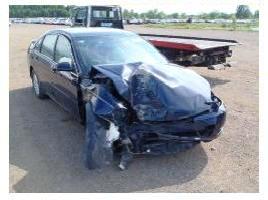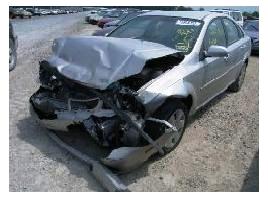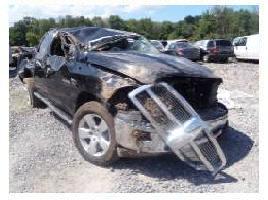Ask an Attorney a Question for FREE!
Small Claims Court
The Police Report

Learning how to read a police report is critical if you want to win your case. A police report is evidence but it does not make the case on its own. The police officer might give a ticket to someone, but this might not mean anything when it comes to fault. It is only evidence.
Getting and reading the police report is very important. Judges put weight on these reports, but sometimes they do not know how to read the report! To learn how to read a police report, click here. The police report has a “witness statement section” and cops write what they are told in that section.
They usually take note of what every driver says and if there is a witness, then they write that. It is important to note that officers do not change anything. They write things down as they are told. They do not put their input or assessment in the report. Some police officers will make a special note, but 99% of the time they do not.
This makes a police report into a form that is filled with a bunch of codes, a diagram, information about the cars, and statements. There is no indication of who is at fault. You might read the report and see that the other party has misrepresented the facts and that the officer has done nothing to correct that statement.

That is because they are not supposed to. So when will the officer’s input come into play? In the codes! You have to learn to read the codes. Some police reports have the codes written on them, some others do not. So you have to get an overlay sheet to be able to interpret it.
There you will be able to see if the police officer is tagging anyone with inattention, or with speeding (even without a ticket) or alcohol, etc. Most judges do not have the overlay sheet with them, so bring one and show the judge that the police officer put “contributory circumstances” on the other driver. This action will be critical to your case.
Remember, this will not necessarily make or break your case on its own. But, it will make your case stronger. If you realize that the police report codes tagged you with something, then you can determine if you want to show this evidence to the judge or simply prove your case with some other evidence.
I have seen cases where the police reports are substantially wrong. By that I mean that the police officer marked down the parties in the wrong cars (the driver of one car with passengers of the other), and identified the vehicle that was rear-ended as the last vehicle that caused the collisions - all which are easily shown as inaccuracies (material inaccuracies).

You can talk to the police department and then move to have the police report thrown out. This is a major pain in the rear. However if the report is against you, you can try to show this to the judge. You can show that the report is being disputed for its material inaccuracies and it should not be taken into account (if this is an ongoing dispute).
If the report was thrown out, then express that. You might say something like, “Your honor, I went to court and the entire report was voided for being so inaccurate. Here is a copy of my case #.” This can change the view of the entire case.
You do not have to dispute the entire report. You can dispute your citation first. If you were speeding, you want to try to get that ticket dismissed. If you cannot do that or won’t even try to, you are pretty much losing your fault case.
There are simple ways to get your ticket dismissed. Many Americans beat their speeding tickets every day, and this should be step 1 before going to court to dispute fault. To learn how to dispute your speeding ticket, read this eBook. I recommend it to anyone who was cited for speeding.
This also applies to DUIs. You should not be disputing fault without trying to get the DUI cleared. You might be able to do this yourself, but for this one, you are going to need a DUI lawyer (this is the type of thing you do not want to take a chance on. If you lose, the consequences are very severe).

Disputing a report because of something minor (e.g. misspelled your name, left a box blank, wrote the wrong date and wrong time) does not have a very good chance of success. If you are disputing the report (note, not the speeding ticket, which can be beat with little things like the ones mentioned above), make sure there are material inaccuracies.
If you show up to court and the other person got the police report thrown out (and the report helps you), ask why.
Make sure the judge knows exactly why. If the report was thrown out because the police officer did not show up to the hearing, this does not make the report statements and assessment void. If the other person argues that their ticket was dismissed, make sure they did not plead guilty and have it changed to a nonmoving violation.
Read more here:
Traffict Ticket eBook
Speeding Ticket eBook
1. Small Claims Court (Overview)
2. When to go Small Claims Court
3. Important Small Claims Considerations
4. How to argue your Small Claims Case
5. Small Claims Court Legal Argument Part I
6. Small Claims Court Legal Argument Part II
7. Arguing in Small Claims (the Police Report)
8. Small Claims Court and the Auto Damages
9. Small Claims and the Injury Claim
10. Collecting the Small Claims Award
11. Appealing the Small Claims Court decision
Total Loss eBook
Personal Injury eBook
|
|
|
For a Free Review of Your Case
Please Call (866) 878-2432 |


